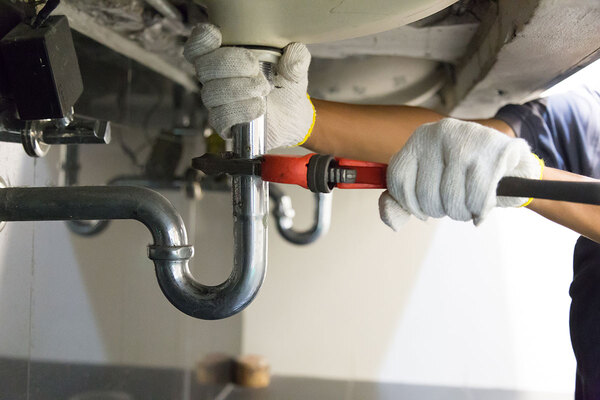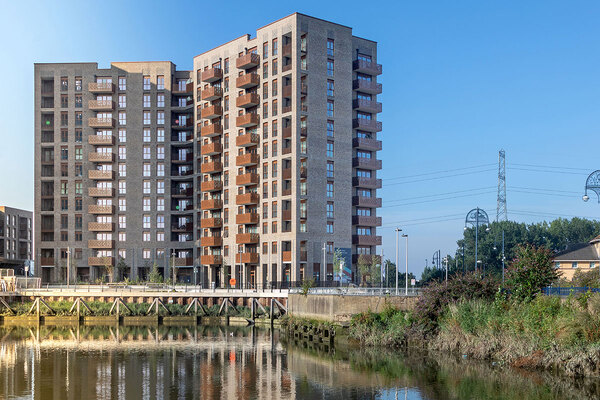You are viewing 1 of your 1 free articles
Midlands giant revises financial ‘golden rule’ as inflation bites
Large Midlands landlord Platform Housing Group has revised one of its financial ‘golden rules’ as inflation has driven up costs related to maintenance and retrofitting stock.
The 47,000-home group has agreed with its board a “short-term reduction” to its “golden rule” of not falling below a social housing lettings margin of 35%.
The decision was revealed in its latest stock market update for the nine months to the end of December 2022. The group’s margin fell to 33.9%, compared with 36.7% in the same period last year.
Housing associations are encouraged to set golden rules, such as minimum cash holdings, in order to keep a tight grip on their finances.
“Costs of maintenance and investment remain high as we continue to reduce backlogged works and absorb ongoing cost inflation,” said Elizabeth Froude, Platform’s chief executive.
“This has meant a reduction in social housing lettings margin.”
The group spent £13.8m on its existing stock in the nine months, covering maintenance and decarbonisation work, up 45% year on year. It spent £2m on around 9,000 jobs related to the post-Covid backlog.
On its retrofitting efforts, Ms Froude added: “Given the current cost of living crisis, we remain committed to energy improvement works and supporting our customers, which is a commitment we will see carried into the coming 2023/24 financial year.”
Platform, which operates across Worcestershire, Gloucestershire and the West Midlands, retrofitted around 200 homes in the nine months to December. On average, properties were improved from an energy performance certificate (EPC) rating of E to C, Ms Froude said. However, it previously pushed back its initial plan to get all its homes up to EPC C or above, from 2028 to 2030.
On completions, the group reported a drop of a fifth, to 775, as it pointed to demand for materials, the impact of Brexit and the war in Ukraine. “These have resulted in increases to materials and labour costs, and extended supply times,” it said.
Like a number of its peers, it has cut its development targets. It was previously aiming for 2,000 annual completions by 2023/24, but revised this last summer to a “steady output” of 1,600 handovers a year by 2025.
Platform said it was also becoming more difficult to enter into fixed-price contracts on new schemes, as “cost increase requests for schemes on site continue to be experienced”.
On damp and mould, the group said it had experienced “higher volumes of customer and stakeholder enquiries, complaints and surveying work”.
The issue has raced up the agenda in the sector since a coroner’s report into the death of two-year-old Awaab Ishak concluded he died from prolonged exposure to mould in his home.
Platform said it had increased its resources to tackle current problems. It added: “We have rerun our damp and mould training with all staff to ensure their ability to support our customers, and our in-house maintenance team are all equipped with appropriate equipment to deal with the low-level and immediate cases they encounter.”
The group reported a 30% drop in turnover from shared ownership first tranche sales, to £27.8m, but said this was due to the timing of the development cycle.
Looking ahead, Platform sounded an upbeat note on shared ownership. It said demand remained “robust” despite uncertainty in the property market.
“Higher interest rates and the cost of living squeeze may have a detrimental impact on owner-occupier housing demand going forward. However, it is also possible that those looking to buy a home on an outright basis might be drawn towards the more affordable shared ownership product,” it said.
Overall group turnover rose 2% to £228.5m, helped by a 7% rise in social housing lettings income due to rent increases and a rise in the number of homes in management, Platform said. Revenue from social housing lettings accounted for 82% of its group turnover.
On an operating basis, Platform’s surplus fell 5% in the period, to £66.7m.
Net surplus after tax was £42.8m, up from £33.6m in the same period last year, which was affected by one-off costs. Net debt edged up to £1.24bn, compared with £1.14bn last year.
Platform currently has a G1/V1 rating with the regulator.
Sign up for our development and finance newsletter
Already have an account? Click here to manage your newsletters












